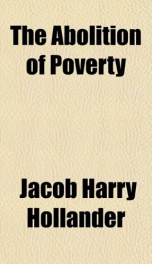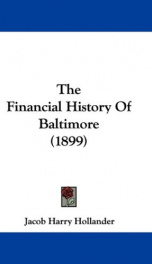the abolition of poverty

Purchase of this book includes free trial access to www.million-books.com where you can read more than a million books for free. This is an OCR edition with typos. Excerpt from book: CHAPTER III THE DISTRIBUTION OF INCOME The existence of poverty thus passes from a problem of economic production into a problem of economic distribution. There is apparently enough to suffice. The national dividend is abundant and to spare. But the process of allotment seems to give not enough to many, and by inference too much to some. The question immediately presents itself as to whether this chronic under-apportioning is a necessary consequence or an avoidable incident of the competitive system, understanding by that term the procedure whereby modern societies distribute the national dividend among their constituent members. In economic discussion this alternative is the issue between collectivism and social regulation. Collectivism asserts that poverty is an inevitable result of capitalistic industry, and insists that anything short of socialized production and distribution is an ineffective palliative. Social regulation, on the other hand, assumes that poverty is the transient friction which attends industrial as well as physical progress, and maintains that economicwant can be checked and eliminated by appropriate social treatment. It cannot be too strongly emphasized that neither course countenances laissez-faire. Whatever welcome may have been accorded the policy of non-intervention, in times more congenial to the acceptance of abstract philosophical doctrines as rules of economic conduct, there is supreme impatience in our own day at any suggestion of "administrative nihilism" as a response to the challenge of poverty. Such dicta as "the great universal progress toward individual liberty, which, as far as can be known by mortals, is the first and immediate object of the scheme of humanity," 43 sound as archaic as eighteenth-century watchwords. Even though ma...
Info about the book
Author:
Series:
Unknown
ISBN:
1276827806
Rating:
3/5 (4)Your rating:
0/5
Languge:
English
Users who have this book
Users who want this book
What readers are saying
What do you think? Write your own comment on this book!
write a commentif you like the abolition of poverty try:
Do you want to exchange books? It’s EASY!
Get registered and find other users who want to give their favourite books to good hands!







